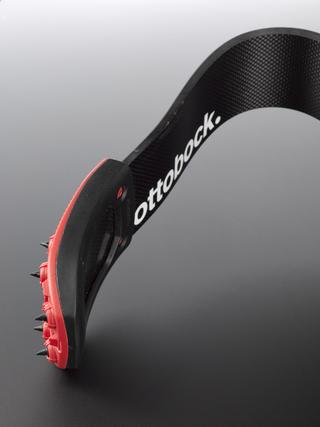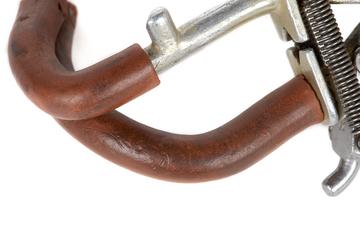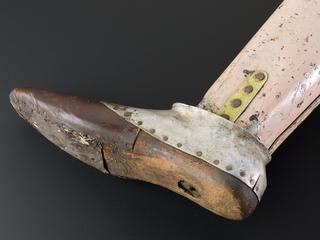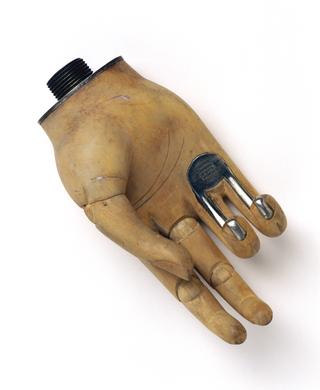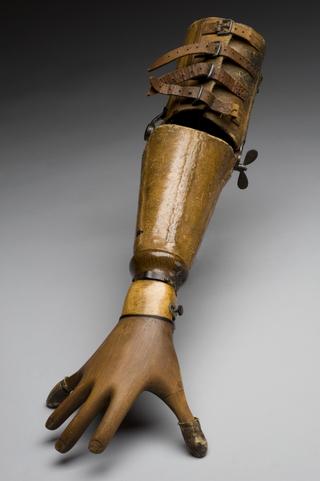




Double truss, circular, for inguinal hernia, size 35, by S. Maw, Son and Sons, London, English, 1900-1930
A hernia occurs when an organ or part of the body protrudes through the muscle wall in the body. This truss is used to support a hernia in the groin. Hernias of this type are caused by physical effort, or even through excessive coughing, and were once a very common problem among labourers and the elderly.
Today they are usually easily corrected by a simple surgical procedure, but before the National Health Service began in 1948, hernias were often left untreated, causing a great deal of pain. The truss, constructed from cloth-covered metal, was made by S Maw, Sons and Son, a surgical and medical instrument maker based in London.
Details
- Category:
- Orthopaedics
- Collection:
- Sir Henry Wellcome's Museum Collection
- Object Number:
- A635990
- Materials:
- frame, steel, spring, covering, fabric and covering, leather
- Measurements:
-
overall: 110 mm x 240 mm x 200 mm, .26kg
- type:
- truss
